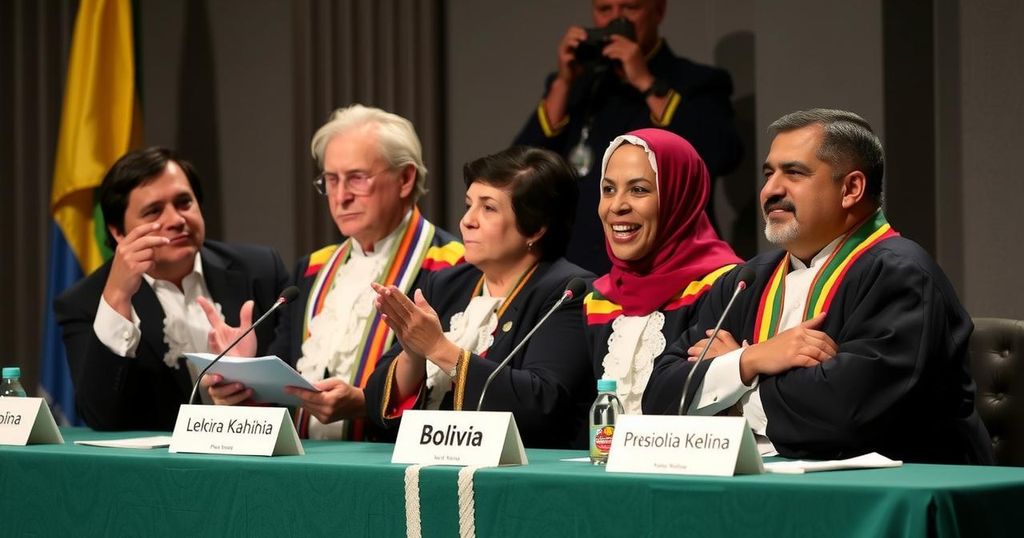Bolivia’s Judicial Elections: A Test of Democracy and Independence

Bolivia’s judicial elections highlight the challenges of democracy and judicial independence as unconventional campaigning methods emerge amidst public apathy. Critics argue that these elections have politicized the judiciary, undermining its role as an impartial body in governance. The backdrop of former President Evo Morales’s influence and ongoing power struggles complicate the electoral landscape, raising questions about the future of justice in Bolivia and beyond.
Bolivia is experiencing an intricate moment in its democratic practices with the impending judicial elections, being the only nation worldwide to conduct votes for its highest judicial officials. As La Paz prepares for the elections on Sunday, unconventional campaigning tactics have surfaced despite strict prohibitions. Candidates have resorted to whimsical strategies such as featuring their images on snacks and embedding slogans in official documents, as many voters grapple with unfamiliarity regarding the candidates. The elections are perceived by many, including architects and political analysts, as a deviation from impartial judiciary principles to political gambits. Critics of Bolivia’s electoral system argue that it has transformed judicial posts into rewards for political loyalty, diminishing the courts’ roles as impartial arbiters of justice.
This pivotal judicial election occurs against a backdrop of controversy and political maneuvering in Bolivia, particularly revolving around former President Evo Morales. Since 2009, Bolivia has adopted a system of electing judges, which has drawn significant criticism for fostering a politicized judiciary, undermining democratic checks and balances. Recent accusations of corruption and manipulation have emerged following interactions between the government and the Constitutional Court, leading to concerns over the legitimacy and implications of the judicial system in the country. These tensions exist within a wider regional context of similar reforms being considered in Mexico, further highlighting the challenges of judicial independence and democratic integrity in Latin America.
In conclusion, Bolivia’s upcoming judicial elections symbolize the complex interplay between democracy, political power, and judicial independence. The unusual circumstances surrounding campaigning and the involvement of influential political figures within the judiciary raise significant concerns. Analysts caution that the current system not only affects governance in Bolivia but may also offer lessons for other nations considering similar judicial reforms, particularly Mexico. Such instances emphasize the need for careful consideration of the mechanisms through which justice is administered to safeguard democratic principles.
Original Source: apnews.com







